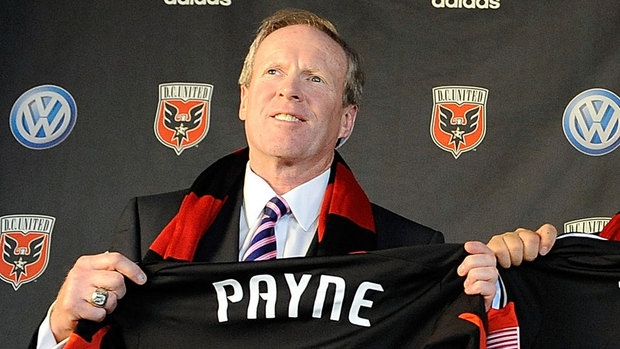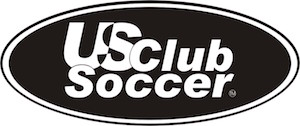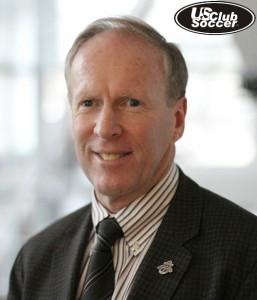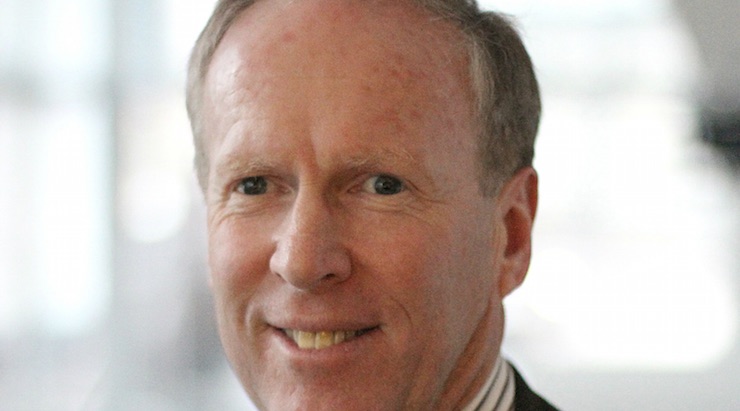New CEO of US Club Soccer – Who Is Kevin Payne?
We have created an economy around winning at the youth soccer level and this is not conducive to developing good players,” says Kevin Payne.
Kevin Payne is probably the most business-savvy, soccer-smart person in America. While there is no race for most powerful person in American soccer, Payne would certainly be a contender, right along side U.S. Soccer’s President Sunil Gulati, if there were a contest.
Payne has single handedly impacted the landscape of American soccer and been a pioneer for the sport since before the FIFA World Cup was played on our soil. Now Payne has the helm of US Club Soccer, and American youth soccer is going to improve.
With the organization’s mission of being the finest soccer organization in America and an integral part of U.S. National Team success, what is Payne’s plan?
 It is important to first understand how Payne switched from professional soccer to youth and became the new CEO of US Club Soccer on January 7th, 2015? It all started when US Club Soccer’s Ken Chartier asked Payne at the 2104 NSCAA convention in Philadelphia if he would want to work with US Club Soccer.
It is important to first understand how Payne switched from professional soccer to youth and became the new CEO of US Club Soccer on January 7th, 2015? It all started when US Club Soccer’s Ken Chartier asked Payne at the 2104 NSCAA convention in Philadelphia if he would want to work with US Club Soccer.
Initially, Payne’s gut reaction was that he didn’t want to be anywhere near youth soccer.
After agreeing to be a consultant to US Club Soccer for nearly a year, Payne saw becoming CEO as an opportunity to create important, positive change.
Payne and Chartier are longtime friends and have known each other since before the 1989 FIFA World Cup qualifying match against Trinidad and Tobago where they bonded as U.S. Soccer star Paul Caligiuri fired off his “shot heard around the world.” Caligiuri’s goal led the U.S. Men’s National Team to its first appearance in the World Cup in four decades. While Payne’s taking over US Club Soccer as CEO may not look as historic as that famous and fate-changing moment in 1989, it may become the landmark moment when the business of youth soccer grew up.
Just so you know – Payne was the Director of Marketing for the U.S. Soccer Federation and an award-winning radio journalist in New York City. He also assembled the first ownership group for DC United and was a founding member of the Major League Soccer (MLS) Board of Governors. Payne has a record of winning – as CEO, President and GM of DC United, his teams won 4 MLS Cups, 4 Supporters Shields, 2 US Open Cups, the CONCACAF Champions Cup, and the InterAmerican Cup. Payne was a board member of U.S. Soccer from 1998 to 2014, has chaired the U.S. Soccer Technical Committee since 2004 working with Jurgen Klinsmann and Tab Ramos, and has been a Board Member and Vice Chairman of the United States Soccer Foundation since 1999. He served on the FIFA Global Committee for Club Football from 2009-2012. Payne has also worked as Managing Director of Soccer for AEG, one of the leading sports and entertainment presenters in the world, where he assisted in the reorganization of the MLS in 2000 and became responsible for six of the ten MLS teams. Most recently, Payne was with Toronto FC.
From helping make the 1994 FIFA World Cup happen in the USA to his work forming the MLS, Payne has been an instrument for change. Through his years of work to make soccer a viable and successful sport in the USA, Payne commands respect and influence and now is turning his attention to youth soccer.
Diane Scavuzzo’s interview with Kevin Payne – Part I
 Diane Scavuzzo: People have been asking for years if soccer has reached a tipping point in America where the sport has truly become popular and we are on the road to developing world-class players. Are we there yet?
Diane Scavuzzo: People have been asking for years if soccer has reached a tipping point in America where the sport has truly become popular and we are on the road to developing world-class players. Are we there yet?
Kevin Payne: No, I think we still have a very long way to go. We still do not have the same level of cultural relevance that exists in major soccer areas abroad. We have done a good job and should be proud, but we have certainly not completed the task and we have not arrived yet.
Diane Scavuzzo: What are our biggest challenges in youth soccer in America?
Kevin Payne: This is America and everyone looks for a simple answer – the Eureka moment – and it doesn’t work that way. We have to do a lot of things better if we want to improve youth soccer in America – that is not a criticism; it is just a simple fact.
One of our biggest challenges is that we do not have a sufficient vision on how the game should progress and what are the representative groups.
Diane Scavuzzo: What is wrong with youth soccer in America?
Kevin Payne: We have created an economy around winning at the youth soccer level and, this is not conducive to developing good players.
What I am talking about is coaches and parents with an obsession on winning the game at the weekend and not focusing on producing players.
Diane Scavuzzo: If you had a magic wand, what would you change in American youth soccer?

Kevin Payne: If I had a magic wand, I would make soccer parents understand what a good soccer experience looks like for their kids.
Parents should not fall back on judging the experience by wins and losses. There are really good people who know what they need to do to develop good players, but the focus on winning has made it very difficult — because of the economics. Parents wanting their kids on teams that win makes coaches try to win at all costs.
Kids want to win – I am competitive as anyone – but we need to find the right way and the right time to win. We are working on trying to develop a different philosophy to begin to change the conversation with parents.
Diane Scavuzzo: Why become the CEO @ US Club Soccer?
Kevin Payne: Initially when Ken asked me at NSCAA if I would be interested, my gut reaction was, I don’t want to be anywhere near youth soccer.
I worked as a consultant for US Club Soccer for most of 2014 and saw that it was quite different than the image that I had for youth soccer. US Club is run by “real” soccer people who care deeply about the game and not just their corner of the game. I saw becoming CEO as an opportunity to create positive change. Over the years, there has been a mentality that has developed in youth soccer; I see the US soccer environment as a giant zero sum game. This has to change.
Diane Scavuzzo: Does US Club Soccer compete with US Youth Soccer?
Kevin Payne: US Club is not competing against US Youth Soccer and AYSO – we are competing against Mexico, Spain, and Germany, for example — and many of those countries are way ahead of us. We need to focus on the success of our youth player development as our shared mission, instead of focusing on tiny little battles between soccer organizations. All the conflict in the youth soccer world and this negative energy is to its detriment.
Diane Scavuzzo: How can we improve youth soccer?
Kevin Payne: There are a lot of good people in youth soccer in America, but we need to do a better job improving the quality of coaches coaching our youth soccer players, and we will. Not by replacing the coaches, but by providing more opportunities for these coaches to grow. Coaches are no different than lawyers and doctors who have to continually seek out learning opportunities to stay on top in their field.
Diane Scavuzzo: What can you do to improve the learning opportunities?
 Kevin Payne: We could be bringing thought leaders to the USA and hosting regional opportunities for our coaches to learn. This is something I want to work on. US Club’s id2 program does a good job letting our coaches travel abroad and gain an understanding of how coaches develop talent in other countries.
Kevin Payne: We could be bringing thought leaders to the USA and hosting regional opportunities for our coaches to learn. This is something I want to work on. US Club’s id2 program does a good job letting our coaches travel abroad and gain an understanding of how coaches develop talent in other countries.
US Club’s id2 National Selection International Tours for boys is going to Argentina this year. In the past, id2 has taken players and coaches annually abroad and has visited Italy, Spain, Scotland, England, as well as the Netherlands and Germany.
Diane Scavuzzo: How is America doing on player development?
Kevin Payne: We are not getting it right in the Zone 1 level with our youngest players. We need to do a much better job of teaching the boys and girls the fundamental aspect of the game so when they get older and more athletic, they have a solid foundation. That is the way the game is taught around the world. The question is, are we providing our youth soccer clubs with the right support so they can create the best possible environment for player development?
Diane Scavuzzo: Can you give me an example of a program that creates a good environment for development?
Kevin Payne: ECNL provides a really good structure for developing players and is focused on training.
Diane Scavuzzo: Do we have an American style of soccer?
Kevin Payne: We should have an American “style”, not as a rigid approach — but if we are trying to develop players, we need to have an idea of what the finished product looks like.
When our Technical Committee task force was meeting recently, Tab Ramos asked, what do we want the American soccer player to look like. I do think that is something we need to spend time talking about — and we will. The conversation is almost metaphysical.
Diane Scavuzzo: Soccer pundits always describe Real Madrid and FC Barcelona players as having great finesse….
Kevin Payne: Yes, in general, you do have a pretty good idea of what a Spanish or German players look like, and of course, what a British player looks like – and, that we do not want to emulate.
Diane Scavuzzo: What is your plan for US Club Soccer?
Kevin Payne: At US Club, our approach on an everyday basis is one that encourages working together with our colleagues in youth soccer but always asking the question, “Is this furthering the cause of soccer in America?”






